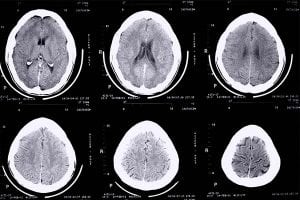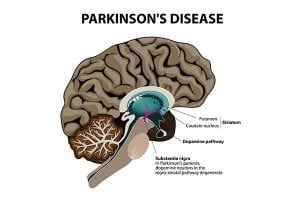
Dystonia
Characterized by involuntary muscle contractions and repetitive movements, dystonia can be mild or severe. It can be focal (one part of the body), generalized (on most or all of the body), or segmental (in two or more adjacent areas). Some types of dystonia are inherited, but it has also been linked to brain tumors, brain injury, stoke, and Parkinson’s disease.
The muscle contractions of dystonia depend on the area that it affects. In the eyelids, it can cause rapid blinking, and in the face and neck, it can affect the tongue or jaw. Dystonia can worsen with stress and anxiety and can also become progressively worse over time. The condition cannot be cured, but the symptoms can be managed. Oral medications may be prescribed to control muscle movement, deep brain stimulation can control muscle contractions, and surgery may be performed to regulate brain regions or nerves. Sensory, speech, and physical therapies can also be utilized.
Epilepsy
Epilepsy is a seizure disorder. About 5.1 million individuals in the United States have a history of epilepsy. A seizure is a change in normal brain activity, and can last anywhere from a few seconds to several minutes. Seizures can be generalized, affecting both sides of the brain, or focal, affecting just one area. Neurological conditions, genetic disorders, strokes, and brain injuries can all contribute to epilepsy. Anti-seizure medications may be prescribed as treatment. For focal seizures, the affected area may be removed to stop future seizure activity.
Hemifacial Spasms

Hemifacial spasms are characterized by involuntary twitching or contraction of the facial muscles on one side of the face. In most cases, the spasm starts near the eye and progresses down the face, but it can also start near the chin and progress upward. This rare condition can be caused by Bell’s palsy, injury to a facial nerve, or a blood vessel, tumor, or anterior inferior cerebellar artery that compresses the nerve. Treatments for hemifacial spasms include Botox injections and anti-convulsants to block nerve firing and surgery to relive nerve compression.
Parkinson’s Disease
A progressive nervous system disorder, Parkinson’s disease is characterized by neurons in the brain breaking down or dying, resulting in less dopamine being produced and in turn, movement problems. The exact cause of Parkinson’s disease is unknown, but genetics, environmental triggers, and the presence of Lewy bodies can all play a role. Tremors are the most well-known symptom of Parkinson’s, but additional symptoms include stiffness, slurred speech, rigid muscles, impaired balance, and the slowing of movement. The condition can also be accompanied by emotional changes, thinking troubles, depression, sleeping problems, and constipation.
There is no cure for Parkinson’s disease, but medication can be used to manage symptoms. While dopamine cannot be given directly, medications can provide chemicals that are converted to dopamine in the body or that mimic dopamine. Deep brain stimulation can also be used to manage symptoms. It is also important to exercise, maintain a good diet, and take steps to avoid falls.
Trigeminal Neuralgia
A chronic pain condition that affects the trigeminal nerve, trigeminal neuralgia can cause pain with even mild stimulation of the face. Even putting on makeup, eating, talking, and smiling can trigger extreme pain. Trigeminal neuralgia is a progressive condition that results in longer, more intense, and more frequent pain episodes. The attacks can last for days, weeks, or even months and often affect one side of the face at a time.
Medications can be used to help, such as anticonvulsants and antispasmodic agents, but the body can stop responding to them. Other treatments can include balloon compression and surgery to stop blood vessels from compressing the trigeminal nerve or damage it to keep it from malfunctioning, such as gamma knife radiosurgery and microvascular decompression.


